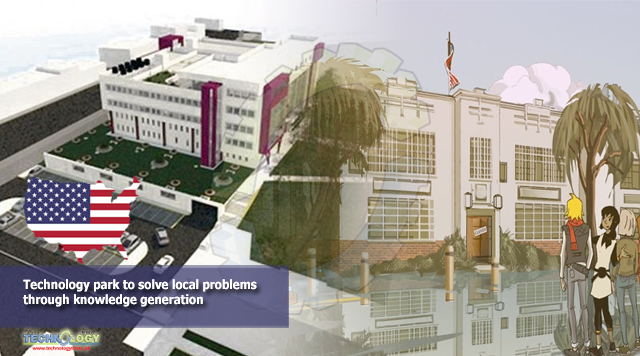A technology park would allow the National University of San Agustín (Unsa) to fulfill one of its roles with society: to solve local problems through the generation of knowledge.

A technological science park would allow the National University of San Agustín (Unsa) to fulfill one of its roles with society: to solve local problems through the generation of knowledge.
The park was declared of interest by Congress and, according to the rector of the university, Rohel Sánchez, will facilitate financing for new research.
A technology park is a set of research centers within a geographic area. The goal is to produce knowledge that meets local needs, and improves productivity and employment.
Sánchez pointed out that the law will not only remain on paper, as it will allow access to funds. Considers that, being of national interest, Unsa will be prioritized in financing from Concytec or the Andean Development Cooperation.
It is planned to implement laboratories in Majes, Characato, Sumbay and within the university city. In Majes, food safety issues will be investigated, in Characato sustainable mining projects, while in Sumbay water monitoring. Other laboratories in the university city will be used for public health.
Sánchez indicated that there are some laboratories underway, especially those of medical sciences within the university. He gave as an example the Molecular Biology laboratory, authorized to detect cases of coronavirus using PCR tests. In the future, he said, the genetic sequencing of the virus could be carried out to determine if it presents mutations in Arequipa.
While the Sumbay and Characato laboratories are yet to be built. Sánchez said that the technical files were completed and he hopes that private companies show interest in the building.
For now, the administrative headquarters of the technology park will be in the Industrial Park, which will be enabled from November, in a launch ceremony.
In the first stage, the technology park will have 130 researchers from Unsa accredited in the National Registry of Researchers in Science and Technology (Regina). However, more will be required, cooperation agreements with other universities and research entities in the region are not ruled out.
Paradigm shift
Sánchez pointed out that, with the creation of the technology park, the doctoral theses should now focus on solving local problems. “The doctorates that were previously carried out are part of history and now we are talking about a new approach,” he said.
He added that the university already conducts research aimed at regional solutions, such as the evaluation of soil quality in Majes, as well as the treatment of mining tailings. In addition, local enterprises are advised under the Jaku project. v
Actors will consolidate project
Rector Sánchez said that different actors in society should consolidate the technology park, such as the State, academia and private companies.
He added that this initiative should generate a link with the local business community, which will have to feed on the knowledge generated in the laboratories.
For now, part of the mining canon resources will be allocated to the project.
*We just want readers to access information more quickly and easily with other multilingual content, instead of information only available in a certain language.
*We always respect the copyright of the content of the author and always include the original link of the source article.If the author disagrees, just leave the report below the article, the article will be edited or deleted at the request of the author. Thanks very much! Best regards!
These were the details of the news Arequipa: Unsa will have a technology park to generate knowledge |… for this day. We hope that we have succeeded by giving you the full details and information.
To follow all our news, you can subscribe to the alerts system or to one of our different systems to provide you with all that is new.
Originally published at Al khaleej today